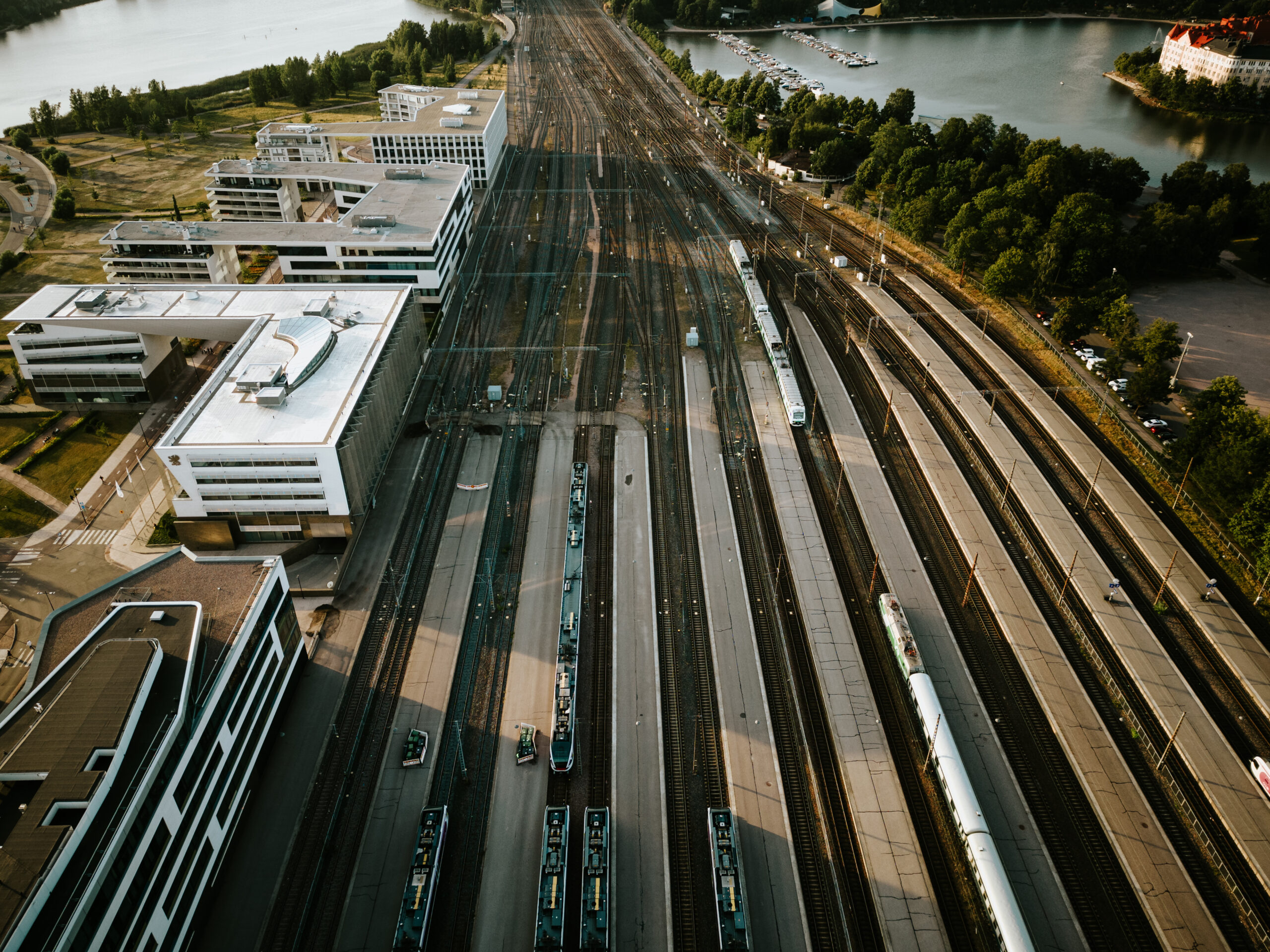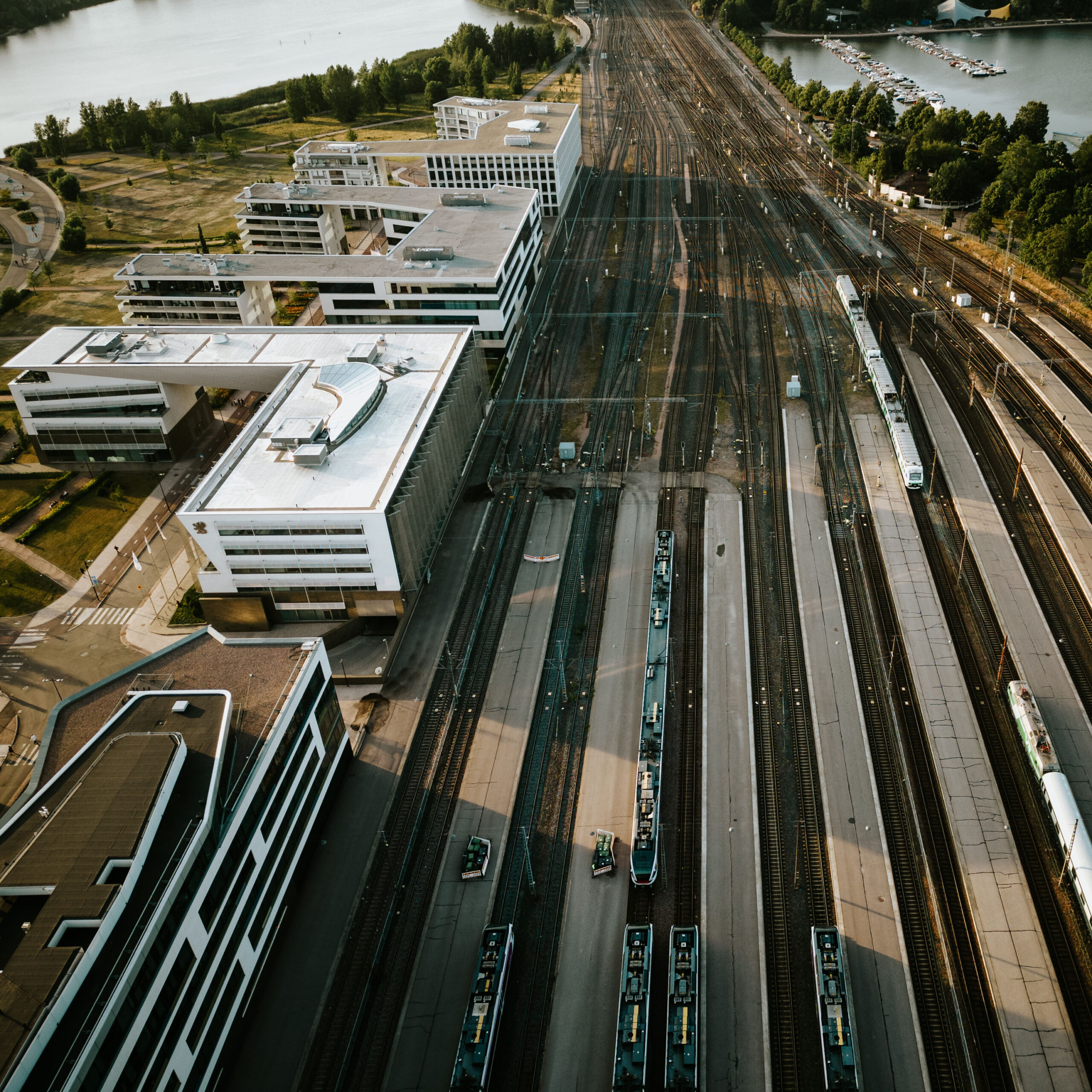Schedule
Railway projects are extensive, and the planning proceeds in stages. The Finnish Transport Infrastructure Agency has been responsible for the previous planning stages for the project. West Railway Ltd is in charge of the railway plans for the project and, after they are completed, construction of the rail link can begin.
West Railway Ltd has produced five railway plans for the rail link between Helsinki and Turku, completing them, for the most part, by the end of 2023. After the railway plans have been completed, we will move on to the administrative stage where the plans are made public.
The railway plans will be approved by the Finnish Transport and Communications Agency Traficom. The objective is to have the final, legally valid plans at the beginning of 2025. The railway plans will remain valid for four years.
After the railway plans have been approved, an investment decision can be taken, which will allow us to begin construction. The expropriation of the necessary land and properties will become relevant after the investment decision.
The construction planning, construction and commissioning of the railway line will take place in 2025–2032. The commissioning and testing of the railway line can begin during the later years of the project.
Moving to the construction stage
According to the Government Programme, the new rail link between Helsinki and Turku will be implemented and construction will begin on the Espoo–Lohja and Salo–Kupittaa connections. The objective of West Railway Ltd is to launch construction planning of the entire connection during the year 2024, and begin construction on the Espoo–Hista and Salo–Halaja connections in 2026.
A decision on construction has not yet been made.
Funding
The costs of producing railway plans for the new direct line from Espoo to Salo and the Salo–Turku double-track railway line total approximately EUR 75 million so far. The costs have been covered by means of capitalization by the shareholders of the project company. The members’ financial contributions have been determined by their shares of ownership: the project company is owned by the state with a share of 51% and by the municipalities with a share of 49%.
The contributions of the municipalities involved in the project are as follows:
- City of Turku EUR 10.25 million
- City of Espoo EUR 10.25 million
- City of Helsinki EUR 5.80 million
- City of Salo EUR 3.74 million
- City of Lohja EUR 3.74 million
- Municipality of Vihti EUR 3.74 million
- Municipality of Kirkkonummi EUR 0.38 million
As an important part of promoting the Trans-European Transport Network (TEN-T), EU funding has also been awarded for planning the project (Connecting Europe Facility, CEF). The EU funding awarded under CEF will cover 50 per cent of the costs (EUR 37.5 million at maximum) incurred in the planning of the Espoo–Salo direct line and the Salo–Turku double-track line.
The shareholders of West Railway Ltd have expressed their intention to capitalize West Railway Ltd in order to cover the costs of further planning the rail line and the construction of the first phase. The costs are estimated to be EUR 600 million at maximum.
Planning the railway project
Planning the railway project involves several stages.
- A prefeasibility study is carried out to assess, among other things, the timing of the railway project with respect to the regional land use plan and the master plan. At this stage, there may be several options for the alignment of the railway lines, and further information will be obtained on them through the prefeasibility study.
- General planning refers to the approximate location and space requirements of the railway and how it relates to land use in the surrounding areas.
- Railway planning refers to detailed planning with the purpose of implementing the railway project. The railway plan presents the alignment of the line so accurately that it can be marked out on the ground.
In addition, the projects must go through an environmental impact assessment (EIA), which is a statutory process for evaluating the likely impact of the railway project on nature, the built environment and the health and well-being of humans, as well as the use of natural resources.
You can learn more about the previous planning stages of the West Railway on the project pages of the Finnish Transport Infrastructure Agency.


